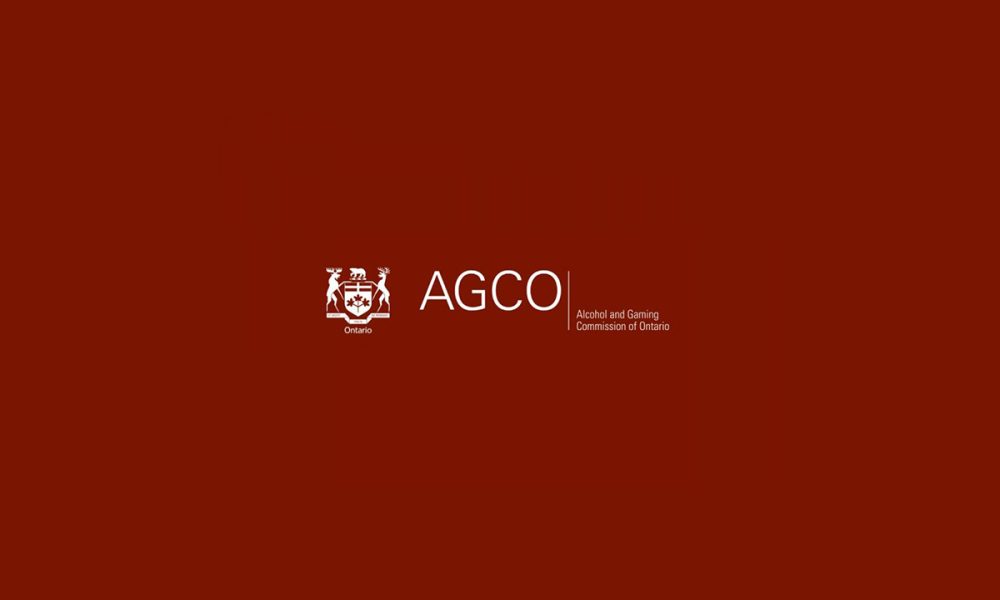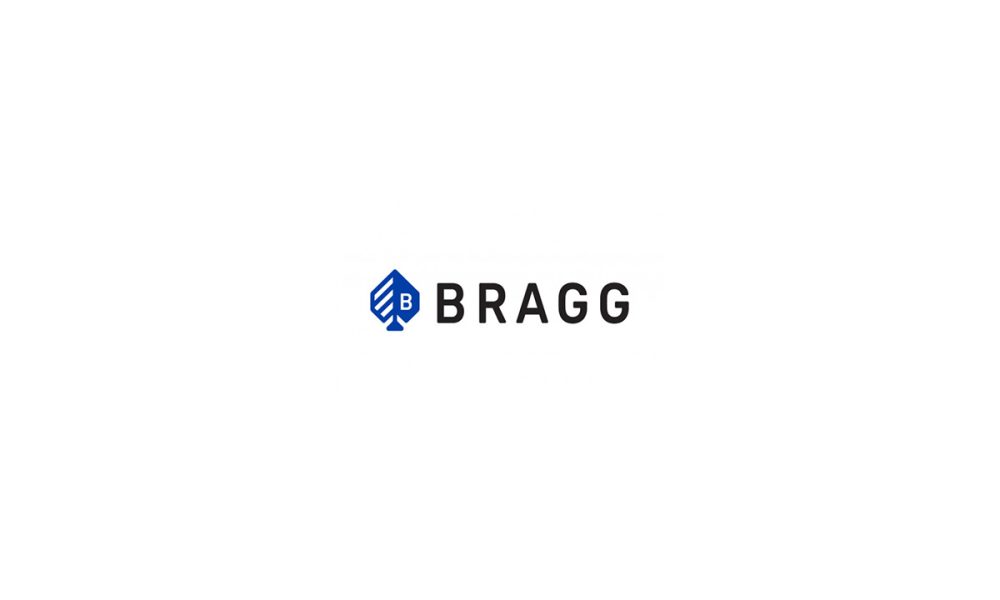

Canada
Why Nova Scotia Won’t Ban Problem Gamblers from Casinos
The Nova Scotia government won’t ban problem gamblers from going to the province’s casinos. The decision was announced on Monday, following an online survey in which the government asked Nova Scotians if it should ban people who don’t want to gamble from casinos and slot facilities. The government says 86 per cent of the 3,000 people who responded said no; 15 per cent said yes and one per cent didn’t know or refused to answer.
However, Health Minister Leo Glavine also said that, if a problem gambler has gambling problems, the matter should be dealt with through the justice system or addiction services.
A brief history of gambling in Canada
Gambling has been a part of Canadian culture for centuries, with many Canadians taking part in different forms of gambling including lotteries and casinos. However, as gambling becomes more accessible, an increasing number of Canadians are developing gambling problems. This led to the introduction of Bill C-290, which proposed stricter regulations on the industry to protect problem gamblers. The bill was passed unanimously by Parliament but was never fully implemented due to a lack of funding.
Gambling in Nova Scotia
Nova Scotia has long been known as the center of gambling in Canada and is home to over 1,000 slot machines. A recent push from anti-gambling groups to ban problem gamblers from entering casinos was dismissed by Premier Stephen McNeil as they believe it would be a violation of their freedom. In place of this, they have created a voluntary exclusion program that would allow people who are struggling with gambling addiction to voluntarily exclude themselves from casinos. Many online casinos that legally operate in Nova Scotia also welcome any one willing to bet.
Gambling addiction facts
Problem gambling is a serious and persistent public health problem. About 1-3% of the population has a gambling addiction, which means there are about 250,000 people in Canada who need help. It’s estimated that about 10% of the population gambles at any one time, but this doesn’t mean they’re all addicted to it.
Gambling disorder is considered an impulse control disorder like other impulse control disorders such as obsessive-compulsive disorder (OCD) and pathological gambling. Gambling disorder can be difficult to diagnose because gamblers may not be aware they have a problem until their life is impacted negatively by their behavior.
In general, provinces regulate casinos, but municipalities can create bylaws that prohibit or restrict casino development on their territory.
The connection between problem gamblers and casinos
Problem gamblers can be defined as people who spend an excessive amount of money on gambling or individuals who have trouble controlling their gambling behavior. There are many different factors that contribute to the development of a problem gambler, but it is often believed that spending time in a casino increases the risk for developing these behaviors.
Casinos are designed to make gambling more enticing by providing a variety of options and rewarding players with freebies. The layout of casinos contributes to this too – they are laid out so that slot machines and table games surround the player, which makes it difficult for them to leave without passing by even more gambling opportunities. The tendency of casinos to offer customers easy access to everything they want at any hour also encourages longer play sessions and worsens gambling addiction.
How can we solve this problem?
Nova Scotia should consider introducing a self-exclusion program that would allow people to voluntarily ban themselves from casinos. This would make sense because casinos are the only place problem gamblers can legally gamble. They also offer other forms of entertainment such as live music, movies, and restaurants.
Self-exclusion programs have proven effective in other countries with gambling addiction issues, so this could be a good way to stop problem gambling while allowing those who don’t have an issue to enjoy themselves.
Problem gamblers and online casino
Problem gamblers are no different than alcoholics or drug addicts, but the stigma around gambling addiction is much less. These people need help and support just like any other addict would. Banning them from casinos doesn’t mean they won’t continue to gamble; it just means they will do it in private and without help.
The government needs to focus on prevention and rehabilitation for this issue, not punishment. The focus should be on those who suffer from a gambling addiction rather than those who don’t. We know there’s going to be more at-risk populations if we don’t offer some sort of service, said Smith. If you’re doing harm reduction, then let’s look at those folks first.
In summary
Nova Scotia’s gambling regulator, the Alcohol and Gaming Authority of Nova Scotia (AGANS), has said that it will not ban problem gamblers from casinos. The decision comes after a recent report by the provincial government found that an estimated 11% of casino patrons are problem gamblers, up from 7% five years ago.
There is no evidence that banning these people from casinos would reduce their gaming activity. Rather than banning them, AGANS has chosen to implement a self-exclusion program where problem gamblers can voluntarily sign themselves out.
A self-exclusion program has been in place at the Casino Nova Scotia since 2006.
AGCO
AGCO Requires Ontario Gaming Operators to Stop Offering WBA Bets Due to Integrity Concerns

The Alcohol and Gaming Commission of Ontario (AGCO) has mandated all Ontario-registered sportsbook operators to halt offering and accepting wagers on World Boxing Association (WBA) events immediately. This measure is being taken to protect the Ontario betting public following concerns that WBA-sanctioned boxing matches are not adequately being safeguarded against match-fixing and insider betting.
Since December 2023, the AGCO has been conducting a comprehensive review of suspicious wagering activity on a WBA-sanctioned title fight between Yoenis Tellez and Livan Navarro that was held in Orlando, Florida. Suspicious betting patterns on the bout lasting over 5.5 rounds were reported to the AGCO by two registered independent integrity monitors and detected in Ontario by a registered igaming operator. Media reports also alleged that Tellez’s Manager placed $110,000 on the match lasting longer than 5.5 rounds at a Florida casino. The bout ended with Tellez knocking out Navarro in the 10th round.
Following an intensive review that included outreach to the WBA, Ontario-registered gaming operators, independent integrity monitors, and regulators in other jurisdictions, the AGCO has concluded that bets related to WBA events do not currently meet the Registrar’s Standards for Internet Gaming.
The AGCO requires all Ontario-registered gaming operators to ensure the sport betting products they offer are on events that are effectively supervised by a sport governing body. At a minimum, the sport governing body must have and enforce codes of conduct that prohibit betting by insiders.
Registered gaming operators were unable to demonstrate to the AGCO that the WBA prohibits betting from insiders, which could include an athlete’s coaches, managers, handlers, athletic trainers, medical professionals, or others with access to non-public information. Further, registered gaming operators were unable to demonstrate that the WBA took any action to investigate or enforce the allegations of potential match-fixing and insider wagering.
The AGCO has indicated to registered operators that in order for WBA betting products to be reinstated in Ontario, operators must demonstrate that the WBA effectively supervises its events, thus bringing them into compliance with the Registrar’s Standards. In December 2022, the AGCO required gaming operators to stop offering bets on UFC events for similar issues related to insider betting safeguards. Within a month, UFC amended its policies and implemented new protocols that allowed the AGCO to reinstate betting on UFC events in the province.
“Ontarians who wish to bet on sporting events need to be confident that those events are fairly run, and that clear integrity safeguards are in place and enforced by an effective sport governing body. Knowing the popularity of boxing in Ontario, we look forward to reinstating betting on WBA events once appropriate safeguards against possible match-fixing and insider betting have been confirmed,” Dr. Karin Schnarr, Registrar and CEO of AGCO, said.
Andrew Cochrane Chief Business Officer of GiG
GiG increases Ontario market presence, powering the launch of Casino Time

Gaming Innovation Group Inc. (GiG), has announced the launch of Casino Time, powered by its award winning iGaming platform and pioneering real-time rules engine LogicX, with revolutionary sportsbook, SportX soon to follow, to further extend its footprint in the regulated Canadian province of Ontario.
The launch of Casino Time carries extra significance, marking only the second time that on-demand, regulated online Bingo has been made available in Ontario. The new Bingo product vertical, launched alongside a strong Casino offering, will be boosted by GiG’s new sportsbook, SportX, as part of a planned release later this year.
GiG has focused its solutions on driving exponential growth in revenue for operators with its highly scalable iGaming platform, offering localised third party content and leading suppliers for the Ontarian market. GiGs peerless gamification layer creates an optimised and immersive casino experience tailored to regional preferences, swelling client retention and player engagement.
Canadian owned and operated, Casino Time is a joint venture amongst leading retail operators in Ontario’s Charitable Gaming sector, delivering Bingo, Slots and Live Dealer Casino Games. Promising a personalised service and community experience, Casino Time is continuing its long-standing partnership with local charities, introducing its joint fundraising model into the iGaming space for the first time.
Now coming towards the end of its second year of licensed operations, Ontario has emerged as one of the largest iGaming markets in North America, second only to New Jersey according to data supplied by Vixio. The first and as yet only Canadian province to launch a regulated market, Ontario boasts more than 1.6 million active player accounts spread over 40 plus operators, generating €1.3 billion in Gross Gaming Revenue (GGR) in its first year of trading, with this data supplied by iGaming Ontario.
Andrew Cochrane, Chief Business Officer of GiG, said: “GiG continues to set the pace with a strong cadence of brand launches in 2024, and I’m pleased that when operators are seeking platform solutions in regulated markets, GiG is leading the pack. Our partnership with Casino Time, will help deliver something new and exciting to the Ontarian market, and further helps to demonstrate the flexibility of our solutions, adapting to match the regional aspirations of our partners to deliver growth.”
D’Arcy Stuart, CEO of Casino Time, said: “We are thrilled to partner with GiG as the core technology provider of our iGaming platform. Their powerful suite of player engagement tools, as well as diverse content and regulatory integrations, underpin our ability to serve and delight our player community. Our hybrid online and offline customer network, as well as unique bingo offerings, will drive exciting opportunities as the platform and the marketplace continues to grow.”
Bragg Gaming Group
Bragg Gaming Announces Resignation of Chief Financial Officer

Bragg Gaming Group Inc., a global B2B gaming technology and content provider, announced that Chief Financial Officer (CFO), Ronen Kannor, has notified Bragg’s board of directors (Board) that he will resign from his position to pursue other career opportunities, effective June 3, 2024. The Company confirms that the search for a replacement CFO has commenced.
Matevž Mazij, Chief Executive Officer and Chair of the Board, commented: “We thank Ronen for his dedication and commitment to Bragg over the past four years and for his unwavering service as a pivotal member of the leadership team.
“During his tenure as CFO, the Company has undergone huge positive transformation including being uplisted to the Toronto Stock Exchange, dual listed on the NASDAQ and successfully completing two acquisitions, all while reporting consecutive years of revenue, gross profit and adjusted EBITDA growth. We wish Ronen all the very best in his future endeavors.”
Ronen Kannor commented: “It has been an honor to be part of the Bragg team which has successfully navigated many challenges and continued to deliver consistent growth over the past four years. I thank the Board for their support throughout my time with Bragg, and I am now fully focused on ensuring a smooth handover to my successor.
“Special thanks goes to my finance team, who work tirelessly to deliver the positive change and financial growth that the Company continues to achieve. I wish them and all of my colleagues continued success with Bragg now and in the future.”
-

 gaming2 years ago
gaming2 years agoODIN by 4Players: Immersive, state-of-the-art in-game audio launches into the next generation of gaming
-
EEG iGaming Directory7 years ago
iSoftBet continues to grow with new release Forest Mania
-
News6 years ago
Softbroke collaborates with Asia Live Tech for the expansion of the service line in the igaming market
-
News5 years ago
Super Bowl LIII: NFL Fans Can Bet on the #1 Sportsbook Review Site Betting-Super-Bowl.com, Providing Free Unbiased and Trusted News, Picks and Predictions
-
iGaming Industry6 years ago
Rick Meitzler appointed to the Indian Gaming Magazine Advisory Board for 2018
-
News5 years ago
REVEALED: Top eSports players set to earn $3.2 million in 2019
-
iGaming Industry6 years ago
French Senator raises Loot Boxes to France’s Gambling Regulator
-
News6 years ago
Exclusive Interview with Miklos Handa (Founder of the email marketing solutions, “MailMike.net”), speaker at Vienna International Gaming Expo 2018













